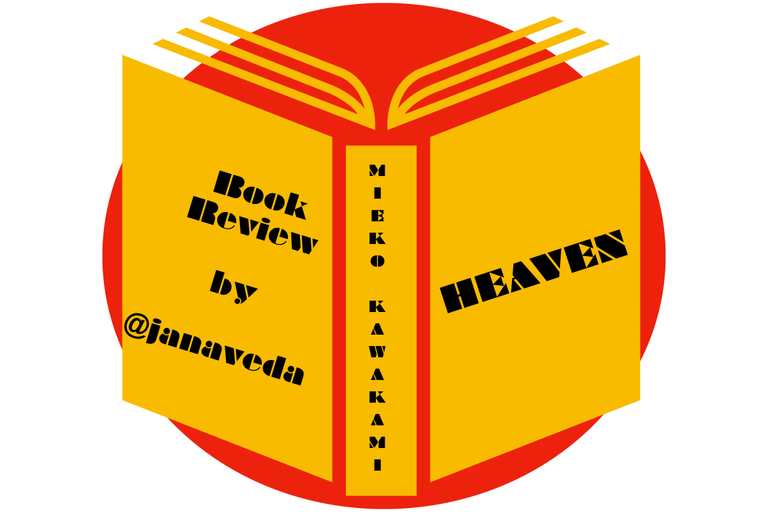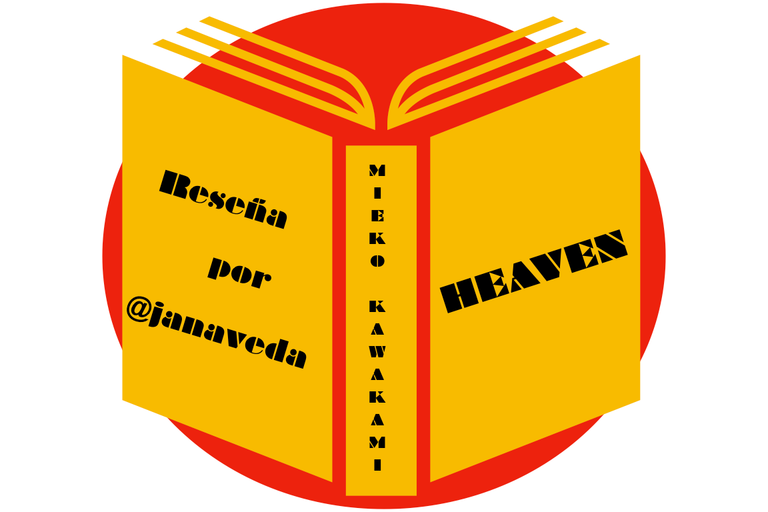

Once again, back to Japanese literature in the 21st century, this novel, Heaven, centered on cruel mistreatment suffered by two teenagers for being different during their school years, did not leave me unmoved by an apparent story for a young audience. Still, as it progressed, it fell into philosophical depths, unveiling interesting ethical and moral dilemmas.
I have long since left adolescence behind. Even my children are adults. The eldest is in his forties and has a five-year-old daughter. On occasion, I hear my granddaughter talk about her disputes with classmates when I ask her how she is doing in school. Hair pulling and shoving. Here I question the efficacy of the education system. Perhaps, violence is an essential part of our very nature, no matter where you are, in Japan or somewhere in Latin America.
I was impressed by the way Kawakami constructed the story, narrated from the perspective of a boy of about fourteen or fifteen, who is constantly abused, both verbally and physically, by a classroom gang under the indifferent, not to say complacent, gaze of the rest of the class. As I read, I wondered: Where were the teachers, and how could they not notice what was going on under their noses?
The description of violence, beyond the explicit, unpleasant, and outrageous, transcended the sieve of the subjective. More than empathy, the feeling of impotence overwhelmed me, harboring the hope of a turn of events in which the perverse would receive their just deserts. However, in reality, this does not usually happen: the law of the strongest operates behind the scenes. I thought of my own experiences and those of my children. Of course, not as extreme as those recounted by this writer.

Source: Image by Mohamed Hassan on Pixabay
By the way, the narrator never reveals his name. He is just a young man tormented by being somewhat different: cross-eyed from birth. Now that I think about it, although he is a main and important character, he is not the protagonist. On the contrary, a young girl with a disheveled and even smelly appearance, who establishes a relationship, at first a rudimentary epistolary one, and then more intimate, supporting him because of the misfortune and fear of the world around him, is the one who, in the subtlety, ends up being the protagonist. Up to this point, I think it is pertinent that I tell you indirectly about what moves the story. I don't want to spoil your reading experience if you dare to give it a chance.
On the other hand, I would also like to point out that the author's writing style is excellent. With a fluid prose that intertwines the description of the scenarios, and the action with the interior dialogues. In addition, she constructs poetic sentences without bordering on extravagance. As a writer, while reading it, I also did an active critique with the intention of learning from good practices, because reading literature is like tasting delicious food. Believe me, this novel is.
I usually end my comments on what I read, if necessary, with a note from the translators. On this occasion, Ms. Lourdes Porta Fuentes. I regret, however, that I have little information to give you. She is a professor and outstanding translator from Japanese to Spanish, born in Catalonia in 1961 and graduated in contemporary history from the University of Barcelona, and Japanese language from the University of Kokusai Kurisutokyō Daigaku in Tokyo. From her hand, I met Haruki Murakami (supposed mentor and literary reference of Mieko Kawakami). So, after reading his translation of Heaven, I ratify what I expressed in my comments about the Spanish version of Blind Willow, Sleeping Woman: Here too, it is excellent. There is also an English version of the novel by Sam Bett, David Boyd as shortlisted for the International Booker Prize 2022.
Thanks for joining me here. We'll keep reading to share our passion for books.

The Book's review, originally written by me in Spanish and translated into English with www.deelp.com (free version)
The thumbnail was created from my drawing made in Krita and edited with Keynote
Thanks for reading me. I hope this review is to your liking. I would very much like to read your comments to enrich myself with your criticism.
Tired...! Are you no longer satisfied with traditional social networks?
Then I invite you to get to know Hive by clicking here.
Join our global community, where uncensored freedom is our north.



De nuevo, de vuelta por la literatura japonesa de pleno siglo 21, y es que, esta novela, Heaven, centrada en maltratos crueles que sufren dos adolescentes por ser diferentes durante la etapa escolar, no me dejó impávido ante una aparente historia para un público juvenil, pero que a medida que avanzaba, caía en profundidades filosóficas, develando interesantes dilemas éticos y morales.
Hace mucho que dejé atrás la adolescencia. Incluso, mis propios hijos son adultos. El mayor, ya va rumbo a los cuarenta y tiene una hija de cinco años. En ocasiones, escucho a mi nieta hablar sobre sus disputas con compañeros cuando le pregunto de cómo le va en la escuela. Jalones de pelo y empujones. Aquí me cuestiono sobre la eficacia del sistema educativo. Quizás, la violencia sea parte esencial de nuestra propia naturaleza, sin importar donde se esté, en Japón o en algún lugar de Latinoamérica.
Me impresionó la manera en cómo, Kawakami, construyó la historia, narrada desde la perspectiva de un muchacho de unos catorce o quince años, quien es maltratado, tanto verbal como en lo físico, constantemente por una pandilla del salón bajo la mirada indiferente, por no decir, complaciente, del resto de la clase. Mientras leía, me preguntaba: ¿Dónde estaban los docentes, y cómo no se daban cuenta de lo que pasaba de bajo de sus narices?
La descripción de la violencia, más allá de lo explícito, desagradable e indignante, trascendía el tamiz de lo subjetivo. Más que empatía, el sentimiento de impotencia me embargó, albergando la esperanza en un giro de las acciones en donde los perversos recibieran su merecido. Empero, como en la realidad, esto no suele suceder: la ley del más fuerte opera bajo bastidores. Pensé en mis propias experiencias, y las de mis hijos. Claro, no tan extrema como las contadas por esta escritora.

Fuente: Imagen de Mohamed Hassan en Pixabay
Por cierto, el personaje narrador nunca devela su nombre. Tan solo es un joven atormentado por ser algo diferente: bizco de nacimiento. De hecho, ahora que lo pienso, si bien es un personaje principal e importante, no es el protagonista. Al contrario, una joven de aspecto desaliñado y hasta mal oliente, quien establece una relación, en un principio de una rudimentaria epistolar, y luego más íntima, lo apoya por aquello del infortunio y el miedo al mundo que lo circunda, es quien, en lo sutil termina siendo la protagonista. Hasta aquí, juzgo pertinente, que les cuente en forma indirecta sobre qué mueve a la historia. No quiero estropear tu experiencia de lectura si te atreves a darle un chance.
Por otro lado, también quiero acotar que el estilo de escritura de la autora es excelente. Con una prosa fluida que entrelaza la descripción de los escenarios, la acción con los diálogos interiores. Además, construye frases poéticas sin rayar en la extravagancia. Como escritor, mientras la leía, también hacía una crítica activa con la intención de aprender de las buenas prácticas, por aquello de que leer literatura es como degustar sustanciosos alimentos. Créeme, esta novela, lo es.
Suelo finalizar mis comentarios de lo leído, en caso de ser necesario, con una nota de los traductores. En esta ocasión, la señora Lourdes Porta Fuentes. No obstante, lamento tener poca información para aportarles. Ella es una profesora y destacada traductora del japonés al español, nacida en Cataluña en 1961 y licenciada en historia contemporánea por la universidad de Barcelona, y de la lengua japonesa en la universidad de Kokusai Kurisutokyō Daigaku de Tokio. De su mano, conocí a Haruki Murakami (supuesto mentor y referente literario de Mieko Kawakami). Así que, luego de leer su traducción de Heaven, ratifico lo que expresé en mis comentarios sobre versión al español de Sauce ciego, mujer dormida: Aquí también, es excelente. Asimismo, existe una versión de la novela al inglés a cargo de Sam Bett, David Boyd, como preseleccionada para el premio internacional Booker 2022.
Gracias por acompañarme hasta aquí. Nos seguimos leyendo para compartir la pasión por los libros.

Reseña del libro por @janaveda
La miniatura se creó a partir de mi dibujo hecha en Krita y editada con Keynote
Gracias por leerme. Espero que esta reseña sea de su agrado. Me gustaría mucho leer sus comentarios al respecto para enriquecerme con sus críticas.
¡Cansado! ¿Ya no te satisfacen las redes sociales tradicionales?
Entonces, te invito a conocer Hive presionando aquí.
Únete a nuestra comunidad global, en donde la libertad sin censura en nuestro norte.



